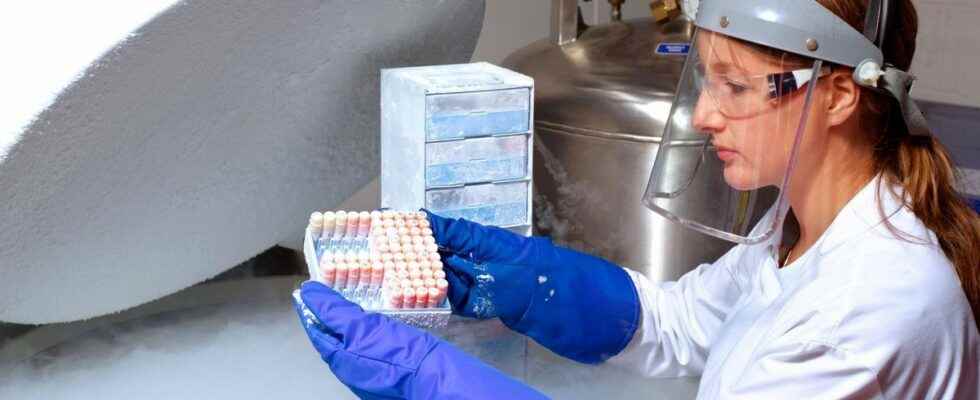Published on
Updated
Reading 1 min.
A study carried out in the Nordic countries hypothesizes a higher risk of cancer in children born from frozen embryos. However, further research is needed to confirm the impact and role of the preservation technique in this finding.
The study conducted by the University of Gothenburg, Sweden and published on September 1 in the journal Plos Medicine, suggests that children born from a fertility procedure involving frozen embryos have a higher risk of cancer than children born by other means. The study of data from 8 million children, all from Nordic countries, should however be taken with a grain of salt regarding the causes of such a finding.
Follow your pregnancy week by week
NO to diets, YES to WW!
“Natural” vs medically assisted births
To come to this conclusion, the team of Swedish researchers analyzed the medical data of nearly 8 million children living in the Nordic countries. In their panel, 7.7 million were born from “natural” procreation, 171,000 were born from medically assisted procreation, including nearly 23,000 from a transfer of thawed frozen embryos (the others having had recourse to implantation directly from the embryo to the uterus, without going through the freezing stage.)
Statistical analysis of the data showed that children born after thawed frozen embryo transfer were at greater risk of cancer than children born after fresh embryo transfer and those without any medical assistance. The most common types of cancer observed in this study were leukemia and tumors of the central nervous system.
A very low individual risk and new studies to be carried out
In their study, however, the researchers point out that their results should be interpreted with caution, because despite a very large study, the number of children born after frozen-thawed embryo transfer who later developed cancer remained very low ( only 48 cases identified). Therefore, the study does not announce a higher individual risk, which should reassure parents. However, the discovery remains important at a time when the number of IVF via frozen and thawed embryo implantation is increasing considerably.
Future research will also be needed to confirm a possible link between the preservation procedure and increased risk of cancer.
